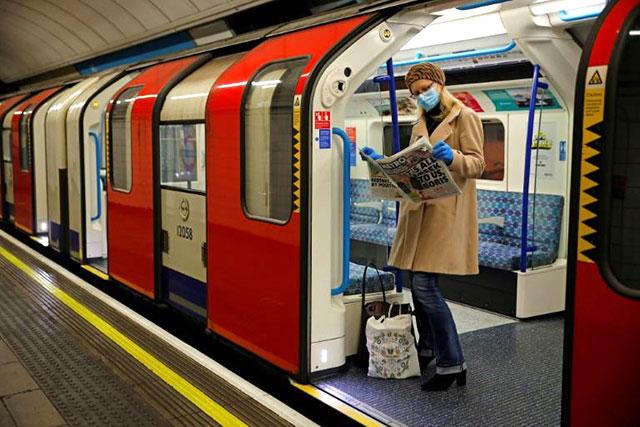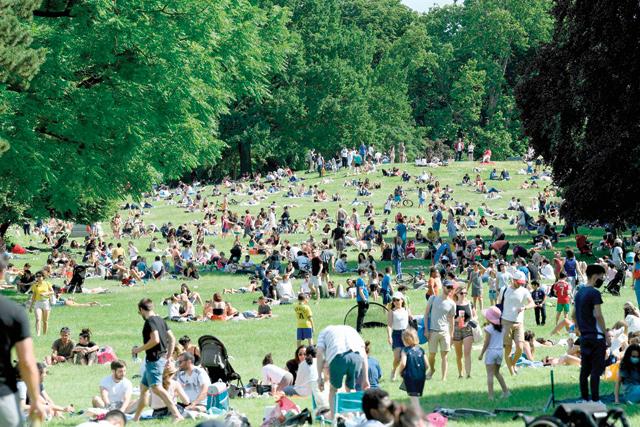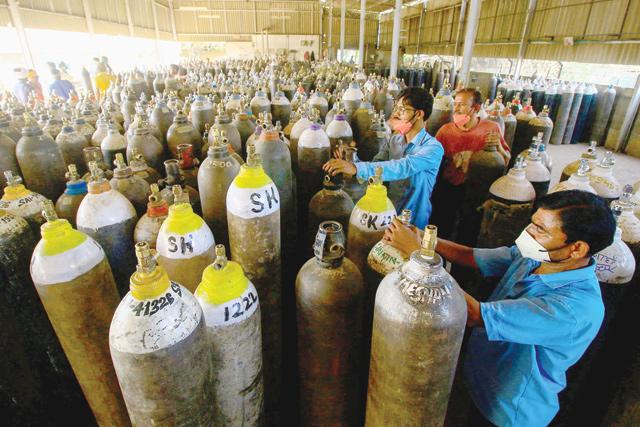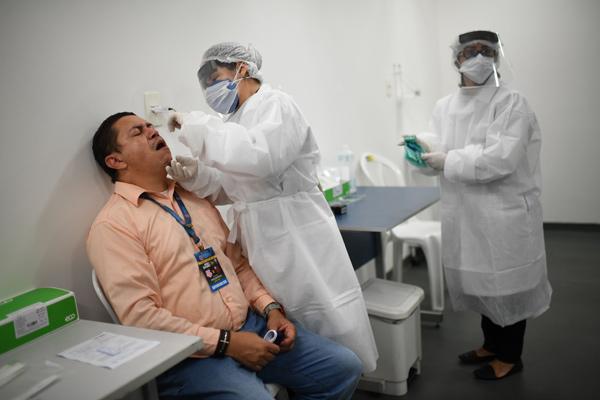You are here
Europe emerges from confinement, but Asia infections spike
By AFP - May 11,2020 - Last updated at May 11,2020

British opposition parties, unions and business leaders have voiced concerns about the safety of people returning to work (AFP photo)
PARIS — Swathes of Europe began the long process of reopening from coronavirus lockdowns on Monday, but a resurgence of infections in China and South Korea offered a sobering reminder of the dangers of a second wave of cases.
The mixed fortunes illustrate the high-wire act governments face across the globe as they try to resuscitate shattered economies while keeping in check a pandemic that has now killed more than 282,000 people and infected over 4.1 million.
As France and Spain embraced new freedoms and Britain plotted a path to normality, the Chinese city of Wuhan where the pandemic was born reported a second day of new cases after a month without a sign of the virus.
And neighbouring South Korea announced its highest number of infections for more than a month driven by a cluster in a Seoul nightlife district.
With millions out of work and economies badly bruised, governments are desperate to hit the accelerator, but most are choosing a gradual approach as fears about a resurgence of the virus loom large.
In parts of Europe, officials have been emboldened by declining death rates, with France's daily toll dropping to 70 on Sunday -- its lowest since early April -- and Spain's daily fatalities falling below 200.
'Keep your distance'
The French were able venture outdoors without filling in a permit for the first time in nearly eight weeks on Monday, and some shops reopened their doors.
The wide boulevards of the Champs-Elysees in Paris were once again back to life with cars and shoppers waiting patiently to make purchases, but things were not as before.
"It's a little unreal, everyone is wearing masks, it's really strange," said Irina, queuing outside a cosmetics store.
Many Spaniards revelled in being able to visit outdoor terraces and cafes again after months under one of the world's toughest lockdowns, although virus hotspots such as Madrid and Barcelona remain under wraps.
"I really missed this, now you value these little pleasures," said Jesus Vazquez, a 51-year-old builder, as he enjoyed a sandwich and beer in the sunshine outside a bar in the city of Tarragona.
Shopping strips were once again populated in Greece, while in other parts of Europe from The Netherlands to Switzerland and Croatia youngsters headed back to the classroom after weeks at home.
"They were jumping with joy when they saw their friends again, they were very happy," 43-year-old Manon told AFP as she dropped off her three children at school in The Hague.
Germany too has set in motion the reopening of shops, eateries, schools and gyms, but Chancellor Angela Merkel refreshed warnings to stay safe after official data showed the infection rate picking up speed again.
"It is necessary that we can have confidence that people are actually sticking to the basic guidelines, so keeping distance, covering mouth and nose, being considerate of each other," she said on Monday.
In Britain, meanwhile, the government unveiled a "cautious roadmap" setting out new freedoms, which included outdoor exercise and allowing construction, manufacturing and other manual workers back on the job.
Almost seven weeks after a nationwide stay-at-home order was put in place, more than 31,800 people have died in Britain -- a figure second only to the United States.
Russia took a similarly cautious approach and said some work could resume this week, even as daily cases hit over 11,000, a record high in the country, and deaths topped 2,000.
Second wave fears
With governments across the world trying to avoid a second wave, Asian nations that were among the first engulfed by the virus but have since brought it to heel are being keenly watched.
Much of China has begun to get back to a form of normality, and on Monday Shanghai Disneyland threw open its gates following a three-month shutdown.
"We are very much looking forward to the first day of reopening and wondering what's the difference inside today compared to before," said one eager visitor named Kitty.
But enthusiasm in China was tempered by news on Sunday that one person had tested positive for the virus in Wuhan. There were five more cases on Monday.
Local health officials said the new infections were all from the same residential compound and were mostly older people.
South Korean officials ordered nightclubs and bars closed after a new cluster of at least 86 cases linked to an entertainment district in the capital -- many in gay clubs.
Officials scrambled to trace thousands of people who visited the area, but efforts were hampered with many believed to be reluctant to come forward because of the stigma surrounding homosexuality.
"If you hesitate a single day, our daily clock may stop for a month. Please contact the nearest clinic or health centre right now," urged Prime Minister Chung Sye-kyun.
The new cluster prompted officials to push back the reopening of schools this week.
South Korea was once home to Asia's worst outbreak outside China but has been held up as a global example for its aggressive testing and tracing that helped it to quickly control the virus early on.
'Be vigilant'
New Zealand, meanwhile, will phase out its lockdown over the next 10 days, although some restrictions will remain.
Prime Minister Jacinda Ardern warned in a televised address that "none of us can assume COVID is not with us", but said the country had only 90 active cases after a seven-week lockdown.
"Your efforts, New Zealand, have got us to this place ahead of most of the world and without the carnage that COVID has inflicted in many other places," she said.
"But there are risks ahead, so please be vigilant."
Extended periods at home have given some people a chance to gather testimony on life in confinement, with the Museum of London launching an appeal for items that reflect the experience.
"It could be something that gives you comfort -- one example mentioned often is maybe your favourite slippers -- you've been wearing them every day," Beatrice Behlen, the museum's senior curator, told AFP.
Related Articles
MOSCOW — Countries across Europe took bolder steps in easing coronavirus lockdowns, with schools, pubs, parks and pools reopening in places,
NEW DELHI — India will lock down its capital New Delhi for a week from Monday night to try and control a raging coronavirus outbreak, as the
RIO DE JANEIRO — The coronavirus pandemic has passed grim milestones as Brazil confirmed 1 million infections and Europe chalked up more tha














